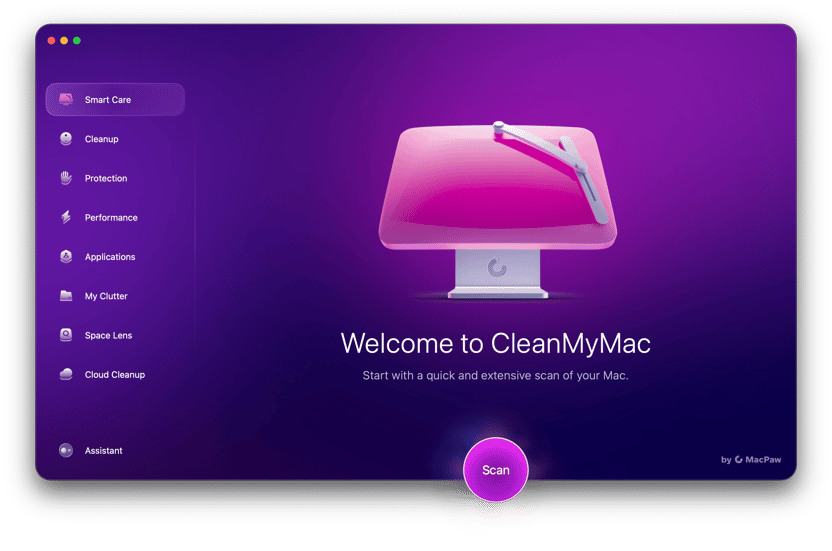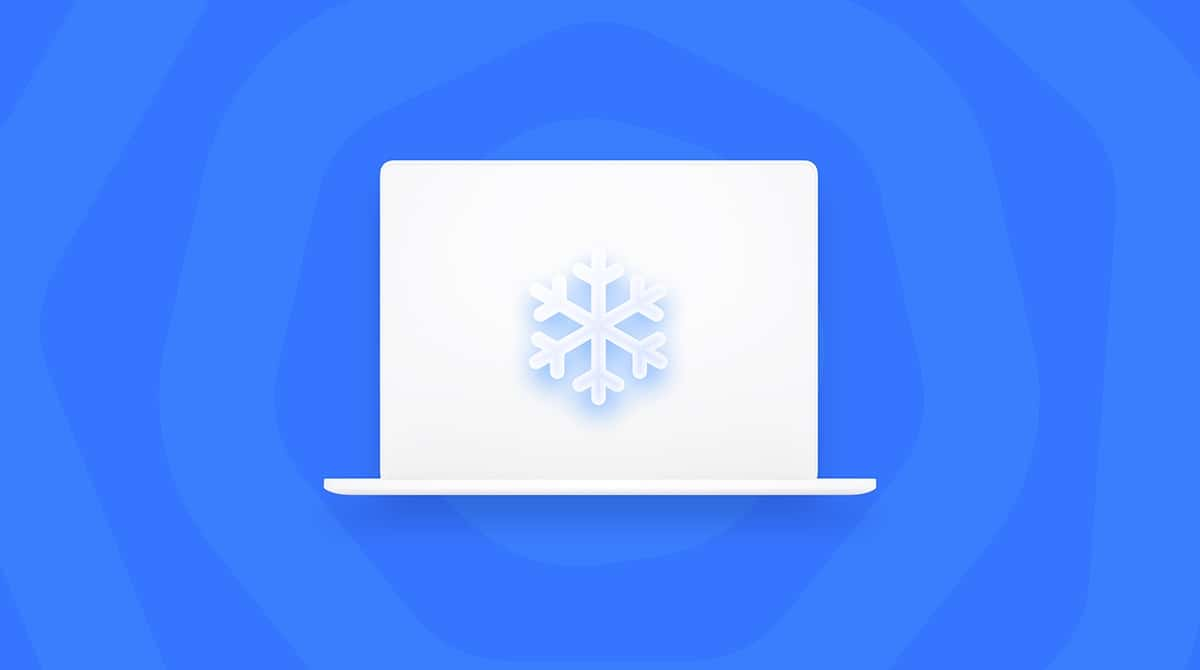Your Mac stuck on a white screen, and you desperately grab your phone to google solutions? As it mostly happens abruptly, you need to find a fast way to bring your Mac back to life. So, let’s get down to work right away!
Why has my Mac stuck on a white screen?
Macs are reliable computers, but on rare occasions, they may encounter trouble and won’t load. When this happens, you see a blank white screen, your Mac becomes pretty much unusable, and you keep asking yourself, “Why won’t my MacBook turn on?”
Usually, this happens after updating your operating system to a new version, when dealing with incompatible drivers, or if some applications fail to upgrade. This results in a blank screen on Mac until some steps are taken to bring your computer back to its normal state.
How to fix the MacBook white screen
Before you do anything to solve the Mac frozen screen, try an easy fix: check your peripherals. Try to disconnect all of them (printers, scanners, USB devices, etc.) with the exception of the keyboard and mouse. Then, reboot your Mac. If it boots up now, one of those peripherals is the source of the plain white screen problem. However, if it fails and your MacBook won’t load, check out other possible ways to wake up your Mac.
1. Boot into safe mode
A safe boot feature in macOS and Mac OS X was designed for troubleshooting purposes. It allows to check the disk for all possible file system errors, and if needed, a repair would be run. Starting your Mac in safe mode is the first thing you should do when your Mac doesn’t turn on.
To start up your Intel-based Mac in safe mode:
- Press the power button, then immediately press and hold the Shift key.
- When you see the Apple logo, release the Shift key.
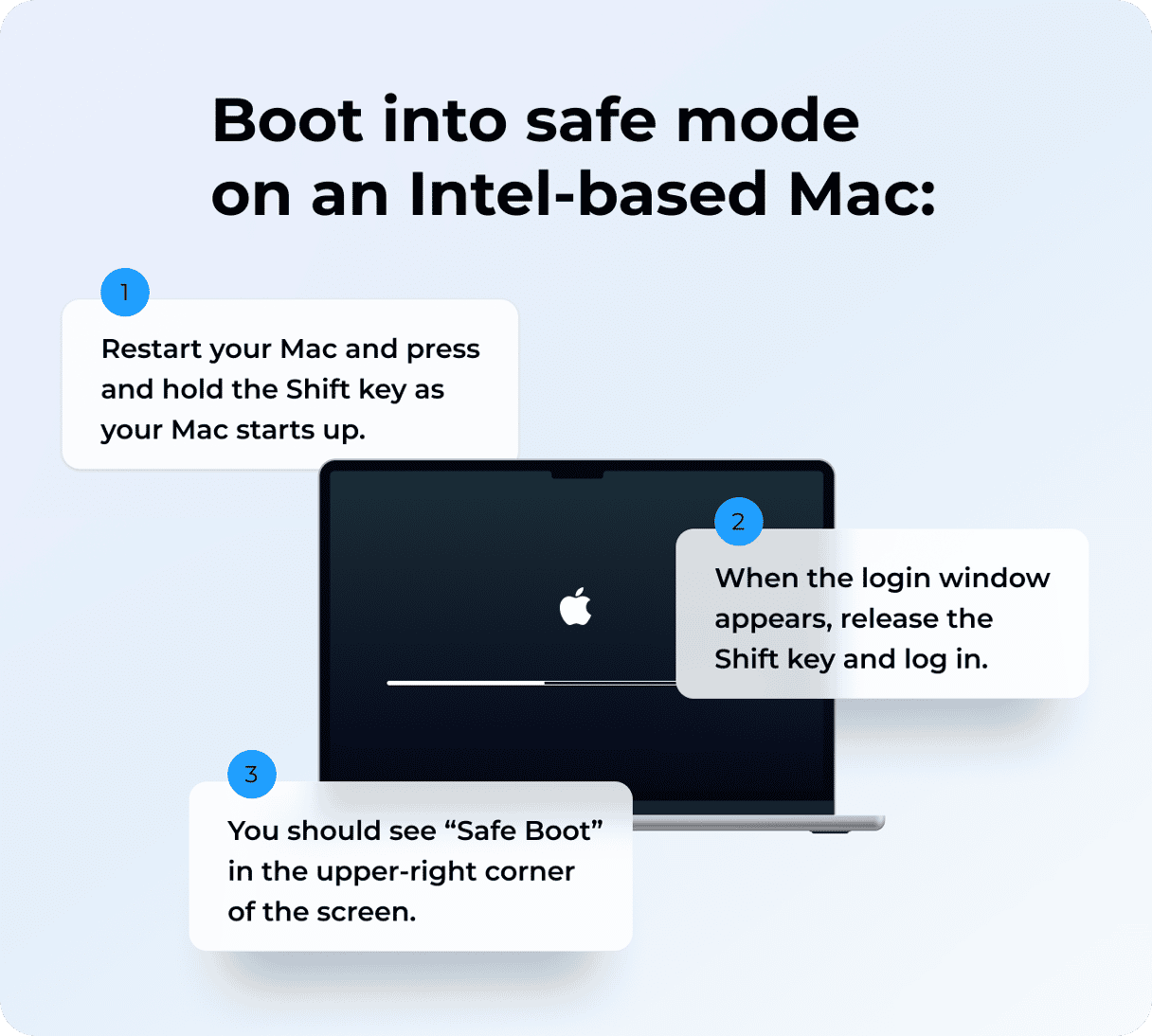
For a Mac with Apple silicon, follow these steps:
- Shut down your Mac.
- Press and hold the power button until you see the startup options window.
- Select your startup disk and press and hold the Shift button.
- Click Continue in Safe Mode.
- When your Mac restarts, enter your login details — you should see Safe Boot top right.
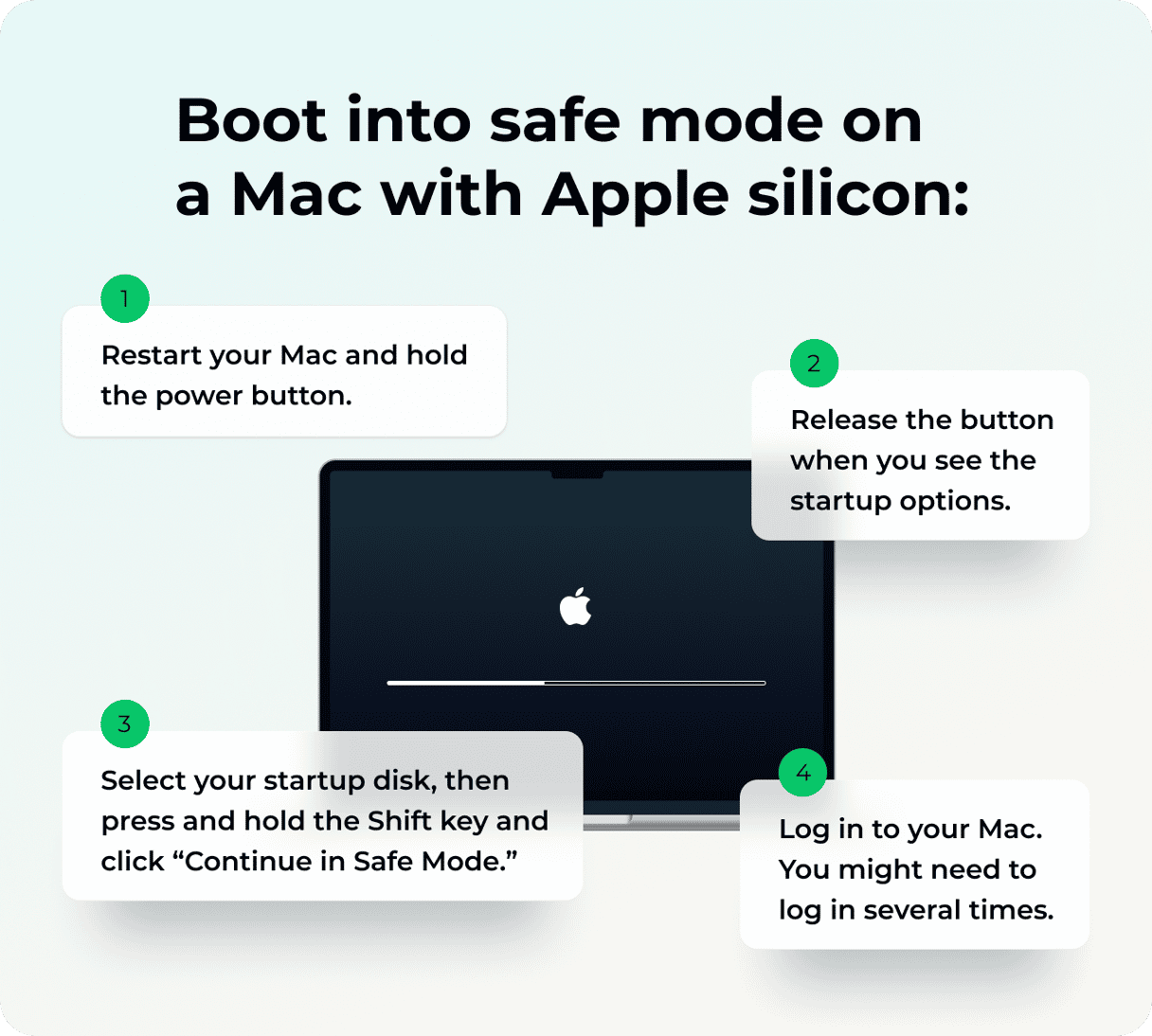
Once you boot using safe mode, the very first thing is deleting cache files. A cache is a place where data is stored temporarily to help things load faster. But eventually, files in a cache become outdated and start to pile up on your Mac, resulting in a white screen problem. Here’s a comprehensive guide on how to clear cache on a Mac.
After you’ve deleted the cache files, you should also remove recently installed applications. But note that dragging them to the Trash is not the right way to remove apps as it leaves behind tons of associated files on your Mac. But don’t worry, there is a utility that will help you — CleanMyMac. Its Uninstaller tool is designed to uninstall apps completely, with no leftover parts and pieces behind.
Here’s how it works:
- Get started with a free CleanMyMac trial.
- Open the app and click Applications > Scan > Manage My Applications.
- In the Uninstaller tab, select the apps you want to delete and click Uninstall.
As simple as that!
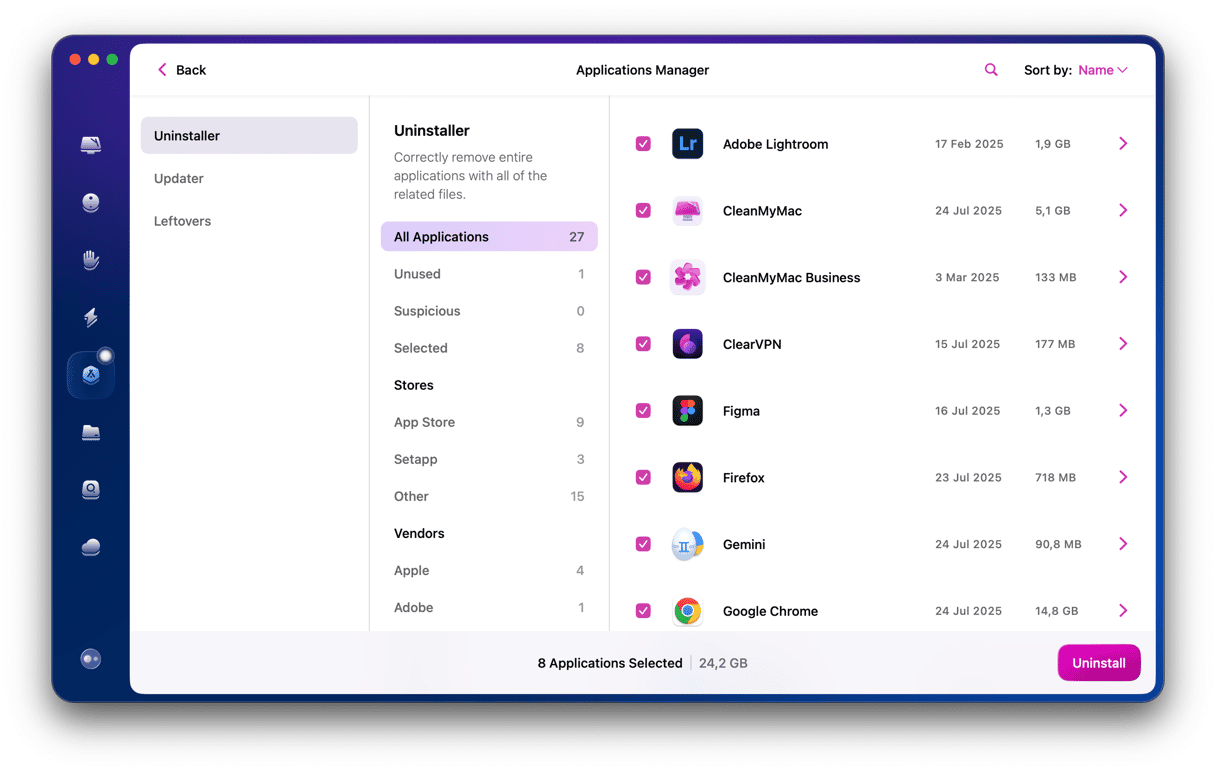
As you’ve removed all the clutter, restart as normal without pressing any keys during startup. Probably you won’t see that MacBook white screen anymore.
2. Reset PRAM/NVRAM
PRAM/NVRAM is a small amount of memory that your Mac uses to store certain settings and access them quickly. These settings include sound volume, time zone, startup disk selection, and more. If you experience some issues related to these settings, resetting PRAM might fix your MacBook stuck on a white screen.
Here’s how to reset PRAM/NVRAM on an Intel-based Mac:
- Shut down your Mac.
- Immediately press these four keys together: Command-Option-P-R.
- Hold down the keys until you hear the startup sound.
- Release the keys.

If you have a Mac with Apple silicon, there is no NVRAM reset, but users on forums recommend shutting down your Mac and pressing and holding the power button for 10 seconds at startup.
When your Mac finishes starting up, you should go to System Settings and adjust some settings that were reset, such as time zone, display resolution, etc.
3. Use Disk Utility to verify or repair disks
Disk Utility can fix several disk problems, including the white screen on Mac. That’s why use it to your advantage if the above steps don’t work. First, boot into recovery mode. Follow the steps below based on the chip your Mac has.
Intel-based Mac:
- Restart your Mac holding the Command and R keys.
- Release the keys when you see the Apple logo.
Mac with Apple silicon:
- Shut down your Mac and press and hold the power button until you see the volume on the screen.
- Click Options > Continue.
- Select volume if asked and click Next.
- Enter your admin credentials and click Next.
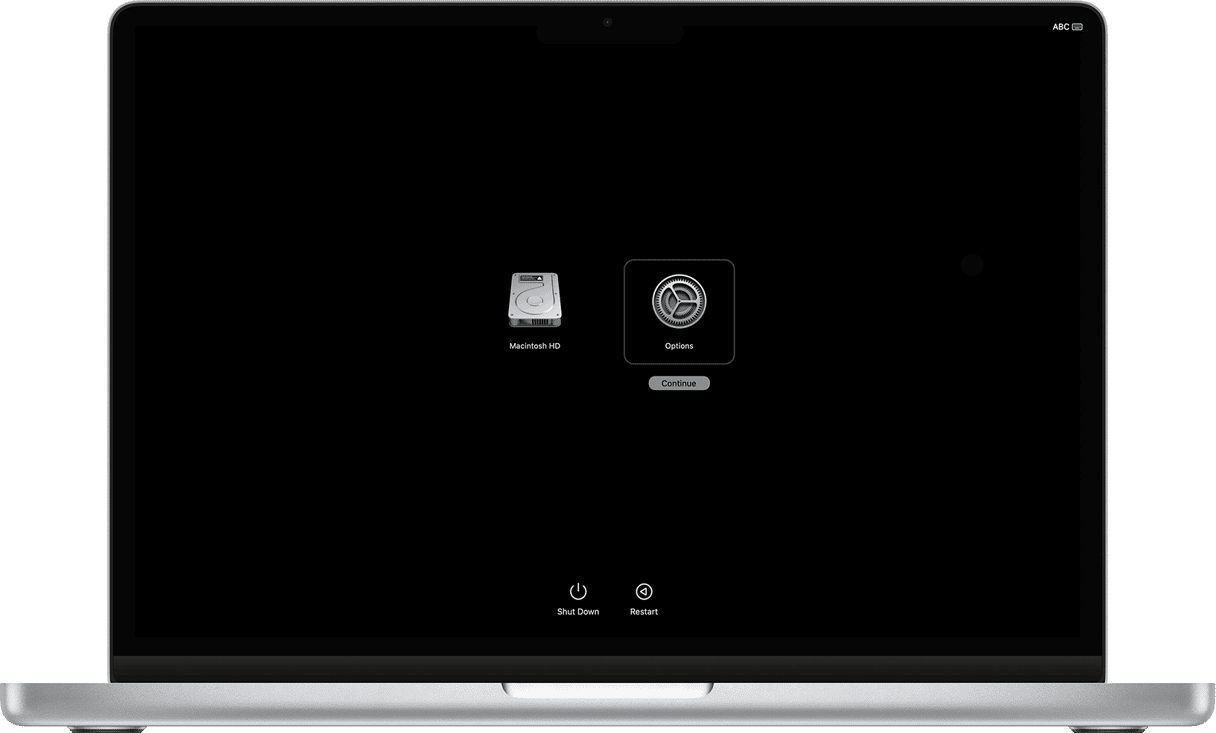
Now, once in macOS Recovery, follow these steps:
- Click Disk Utility and then click Continue.
- Choose the disk you want to repair.
- Click the First Aid button.
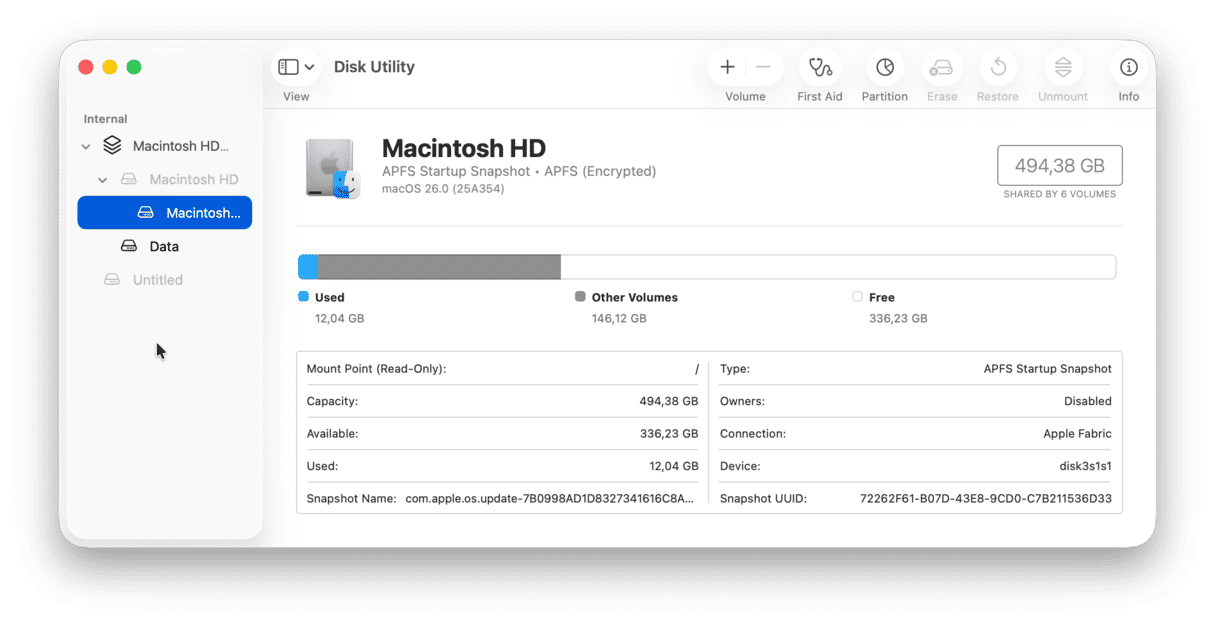
If Disk Utility says the disk is about to fail, there’s nothing you can do — you have to replace it. If it reports that the disk has been repaired, you’re done. You can click Show Details to get more information about the repairs.
4. Reinstall macOS
If all the approaches are failing and you still see that white screen on your Mac, you may need to reinstall your operating system. Don’t worry; it won’t affect your files, apps, user settings, etc. Only a fresh version of the macOS will be installed on your Mac again.
Here’s how to do that for different macOS versions:
- macOS Sierra
- macOS High Sierra
- macOS Mojave
- macOS Catalina
- macOS Big Sur
- macOS Monterey
- macOS Ventura
- macOS Sonoma
- macOS Sequoia
Note that sometimes the standard reinstall methods won’t work due to the issues with the drive. In this case, you’ll need to use internet recovery to reinstall the operating system.
Follow these steps to reinstall macOS from the internet on an Intel-based Mac:
- Turn on or restart your Mac.
- Hold down the Command-Option-R keys until you see the Apple logo or a spinning globe.
- When the startup is complete, you’ll see the Utilities window.
- Choose Reinstall macOS and click Continue.
Follow the on-screen instructions to complete the process.
For a Mac with Apple silicon, follow the steps above to boot it into recovery mode and then click Reinstall macOS.
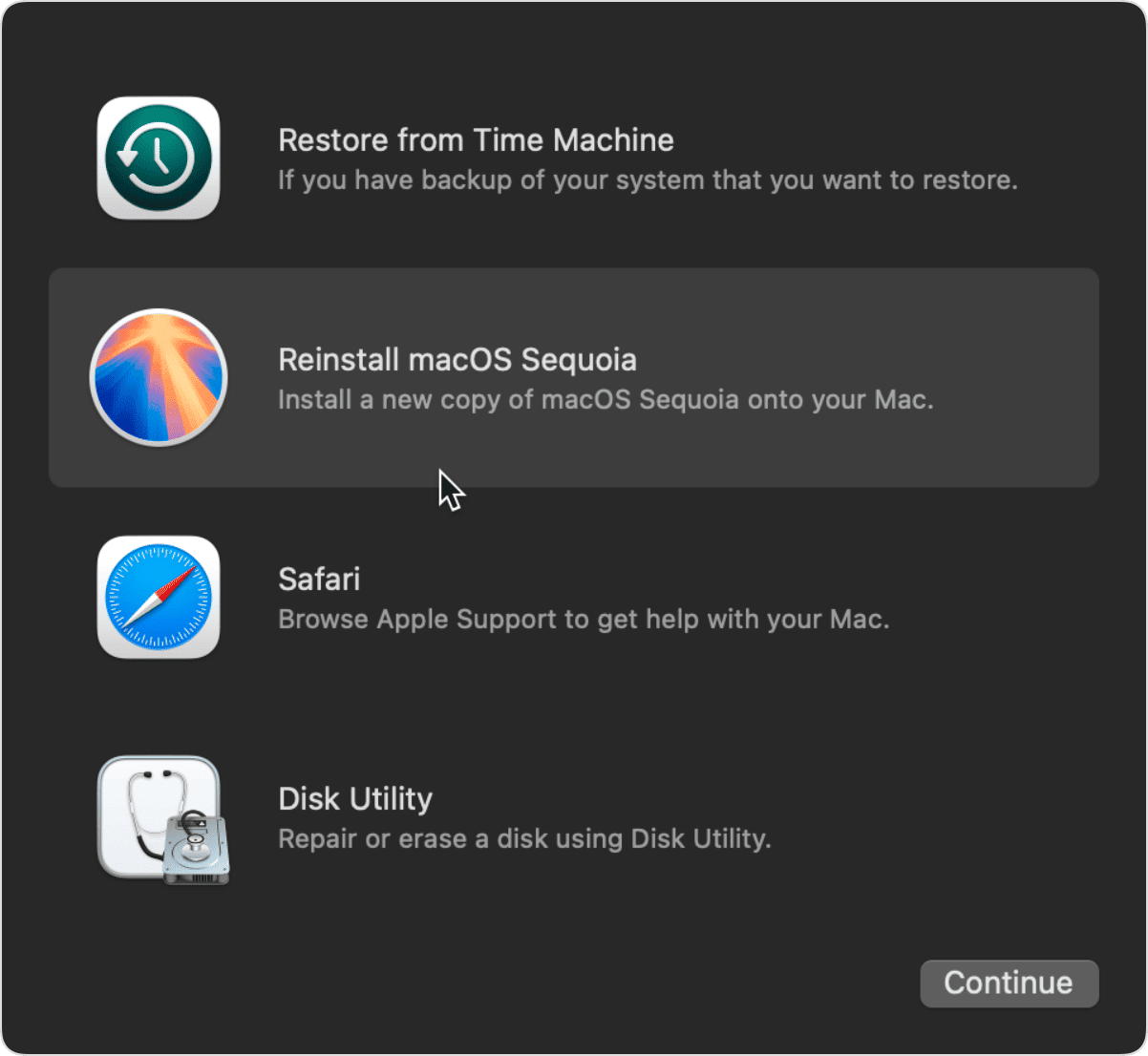
Once you’ve brought your Mac to life, make sure to do some maintenance to prevent such unpleasant issues in the future. A utility we’ve mentioned above — CleanMyMac — will help you keep your Mac in shape for years. Apart from cleaning your Mac from all the junk, it gives you access to all maintenance tasks that allow you to quickly optimize the system performance and never worry about the health of your Mac.
With the solutions above, you’ll fix the white screen problem on Mac so that it can function like a new one. Cheers!




